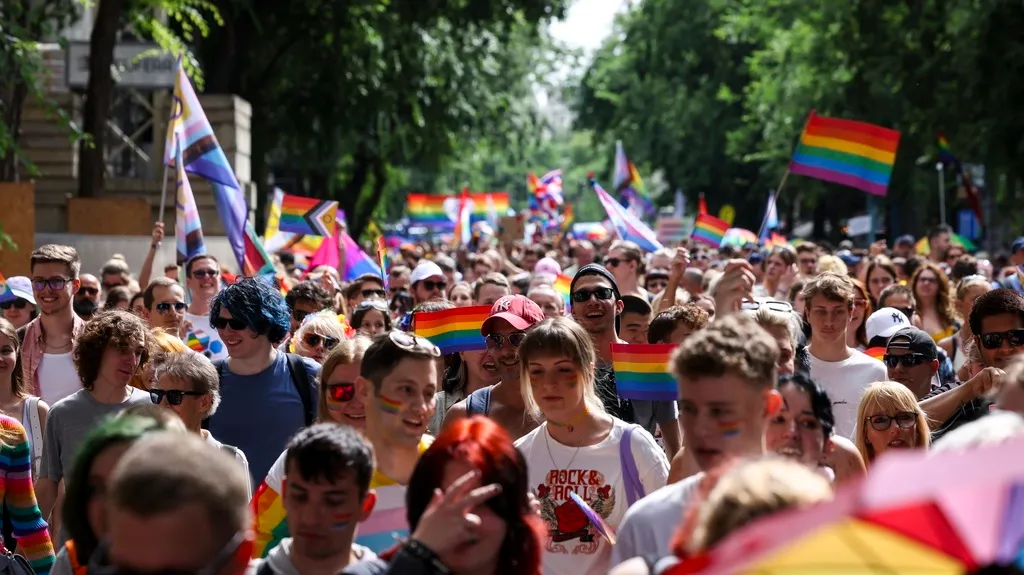June 28, 2013
Ruling a Boon for Gay Couples With Foreign Spouse
Jason St. Amand READ TIME: 3 MIN.
After being interviewed by a federal immigration officer earlier this year, Catriona Dowling was told her Irish spouse would have been given a green card - if she were a man.
Now that the Supreme Court has ruled that married gay couples should have equal federal standing with all other married Americans, Dowling is eagerly awaiting the life-changing approval of the couple's application.
The court's decision was met with euphoria by binational same-sex couples who were unable to obtain green cards or other immigration benefits awarded to heterosexuals. In some cases, couples moved abroad to stay together, faced the prospect of deportation or hopped from visa to visa to remain in the country legally.
The ruling means Dowling and spouse Cathy Davis won't have to worry when they take their three children to visit family in Ireland. They can dip into savings to spruce up their Boulder, Colo., home, knowing they'll be staying there and they can enroll the kids in soccer this fall.
"You don't know how heavy it is weighing on you until it's gone," the 55-year-old information technology manager said Thursday, recounting how she and Davis cried when the ruling came down as pajama-clad neighbors stopped by to celebrate the news. "It's this huge wave of relief."
Hours after the ruling found the Defense of Marriage Act unconstitutional, the U.S. government announced it would start extending immigration benefits to gay married couples. Homeland Security officials declined to provide additional details.
About 32,000 same-sex couples in the United States have one partner who is an American citizen and another from a foreign country, said Gary Gates, a demographer at the University of California, Los Angeles Law School's Williams Institute. It isn't clear how many of those couples are married or how many might seek immigration benefits.
"Numerically, it is a very, very modest impact," Gates said. "But I think it's very important in the sense many of these stories are in fact couples who have been perhaps together for a while and have kids together and they lived for some time fearing they would have to separate."
Heterosexual Americans have long been able to sponsor husbands or wives for green cards to live in the United States. Same-sex couples were not able to obtain these immigration benefits, or a number of other federal benefits, because the 1996 law prohibited the U.S. government from recognizing their marriages - until this week's ruling.
In recent years, binational gay and lesbian couples have stepped up their fight for immigration benefits and achieved some limited success as legal challenges to the law wound through the courts.
In some cases, immigration judges held off deporting a foreign spouse. In others, couples tried to get green cards, were denied and appealed the decision, hoping the Supreme Court decision would favor them.
Some couples held off applying for green cards to see how the court would rule. Los Angeles-based immigration lawyer Lavi Soloway said he had more than 100 immigration petitions ready to file on Wednesday.
"When a ruling like this comes down, it is not simply changing the reality for people today," he said. "It is changing the reality for couples who have been together for 30 or 40 years and have never been able to resolve this issue."
The ruling could also spur some gay couples to marry. Until now, some held off for fear that immigration officials might reject their applications for short-term visas to work or study in the United States if they learned they intended to stay in the country as the spouse of an American.
It may also bring some U.S. citizens home.
Martha McDevitt-Pugh, 54, said she hopes she'll soon be able to return to Northern California to be closer to her ailing 84-year-old mother. McDevitt-Pugh married her wife, Lin, 12 years ago in the Netherlands, knowing they couldn't live together in the United States at the time.
"The point is, we now have a choice," said McDevitt-Pugh, who founded the group Love Exiles for gay and lesbian couples who moved abroad to stay together. "We have a house here, we have a base here - we're not going to completely abandon the Netherlands, but we want to be able to spend extended periods of time in the U.S."




